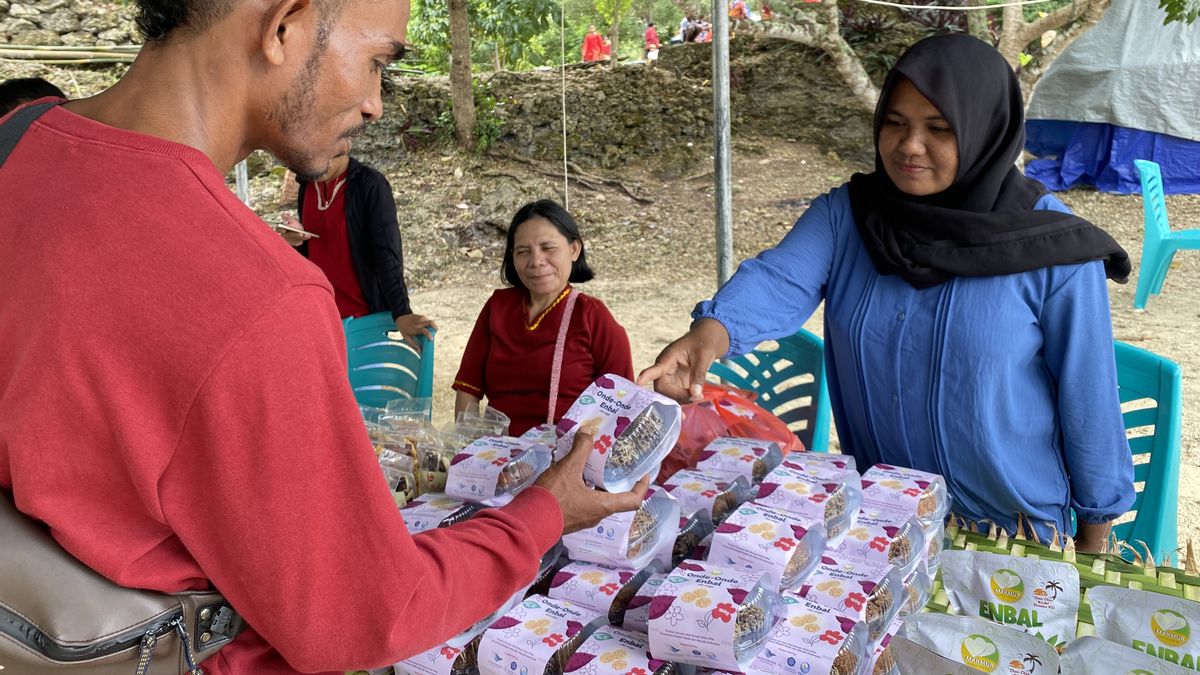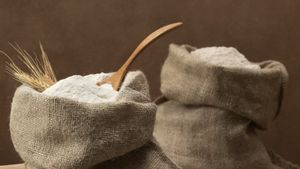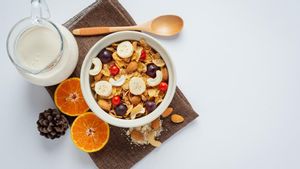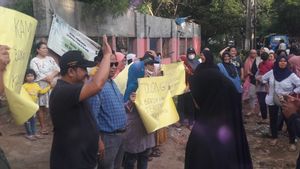LangGUR - Indonesia has a variety of unique and delicious traditional foods. One of them is the staple food for the people of Maluku. The staples are very easy to find on Kei Island or Tual in Southeast Maluku.
The culinary name may still sound foreign to people living on the island of Java. Embal itself is the Kei language for wood or cassava sweet potato plants that contain cyanide poison.
Hearing the word cyanide poison, it might make us think again about tasting processed food from the patch. However, it is safe to consume if properly processed through a long process.
After being harvested, the cassava, which still has the content of the poison, is washed clean and then cut, then wrapped in a filtered cloth and crushed with a stone or a tool to separate the juice from the grounds. Sari containing the poison is thrown away, while the grounds can be processed into various kinds of food.
SEE ALSO:
The embals are usually only processed into comorbidities, namely a mixture of yields and coconuts that go through the burning process, then used as fried banana coating flour, can also be made with flower yields, peanut yields, to sweetbals of various flavors.
The Real Working Lecture Group for Community Empowerment Learning from Gadjah Mada University (KKN-PPM UGM) in collaboration with national airline Garuda Indonesia provides assistance to micro, small and medium enterprises (MSMEs) to increase this local food branding.
Now, the cooking is processed into various kinds of delicious snacks such as patchy sticks with various flavors, yield pieces, patchy fry to onde-onde embals. After being processed and packaged more attractively, the yield has a high selling value.
KKN Field Advisory Lecturer PPM UGM Kec. Manyeuw Southeast Maluku, Antari Innaka said the UGM KKN-PPM group helps make packaging designs that are more attractive and good for food products made from these yields.
In addition to helping increase product packaging, Antari said the UGM KKN-PPM group also taught MSME players in Ohoi Debut, Manyeuw District to expand their product market share through e-commerce.
"Regarding a type of food that can sell in the market, then pack it up to the marketing. That's what our UGM KKN-PPM team in Manyeuw did," he told VOI, when met by Ekotourism Hoat Tamngil, Manyeuw District, Southeast Maluku, Saturday, August 24.
Antari said that with the current packaging, the selling price of products made from the base of these yields will be higher. Initially, he said the product was packaged only in clear plastic and affixed with brand stickers.
"With a better packing, people tend to buy. In the past, only plastic was given a sticker. It's really bad. With this packaging, MSMEs developed, so they sold. If in the past it might cost Rp. 12,000, now it can be sold up to Rp. 20,000 to Rp. 35,000," he said.
However, Antari admitted that improving the MSME class in Manyeuw District, Southeast Malaku is not easy. There are challenges faced, especially related to product packaging. He said the product packaging currently being imported from Yogyakarta, Central Java.
"It's difficult, this kind of packaging model can only be done in Java. There is nothing here, it's difficult. Yesterday I brought it from Java five boxes of packaging for MSME actors here, because they needed it," he said.
Furthermore, Antari said that the UGM KKN-PPM students had informed MSME players how to get the packaging. So, when the KKN period is over, MSME players can still continue their business.
"Immeraka will continue, we have informed the message in Java, the address is this. And we have given the design," he said.
The English, Chinese, Japanese, Arabic, and French versions are automatically generated by the AI. So there may still be inaccuracies in translating, please always see Indonesian as our main language. (system supported by DigitalSiber.id)
















